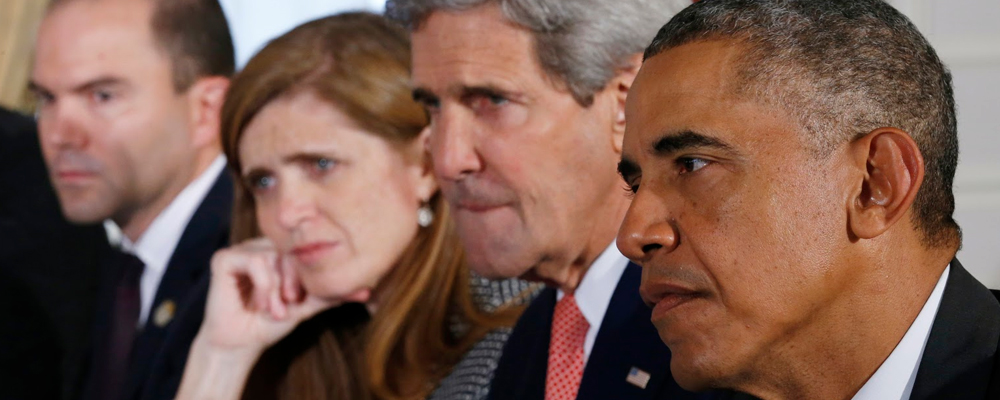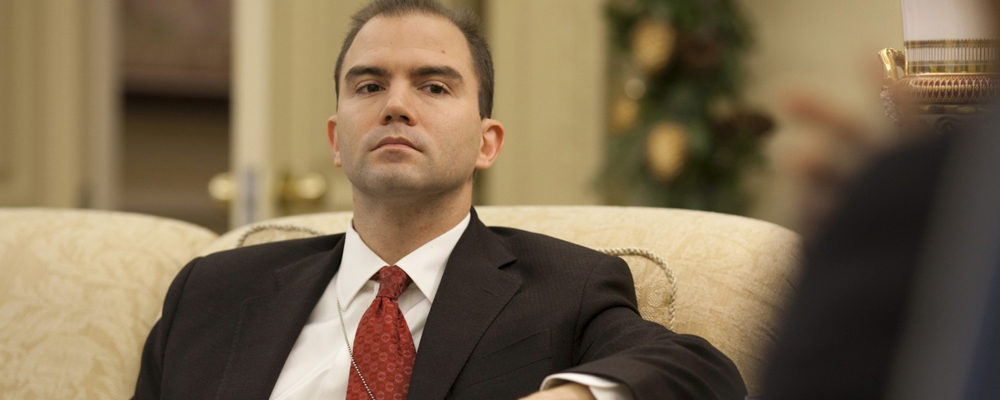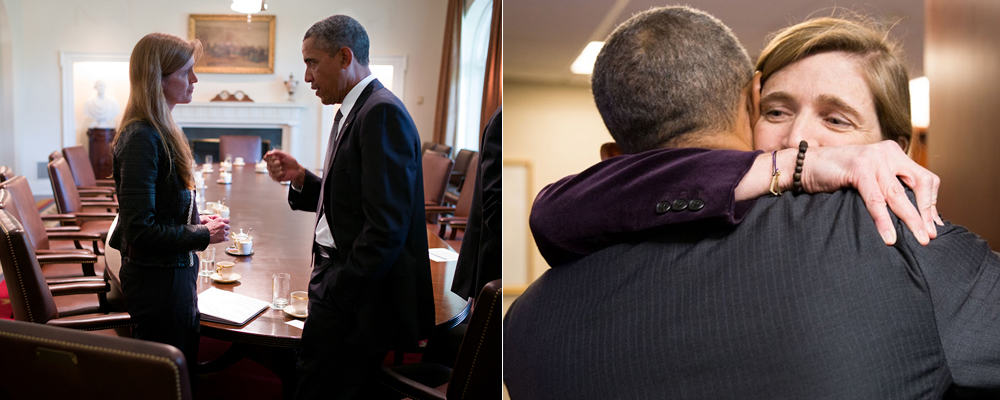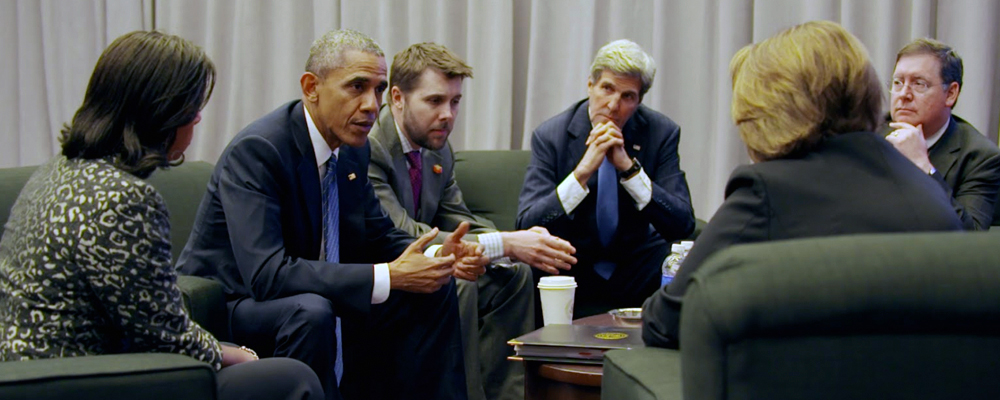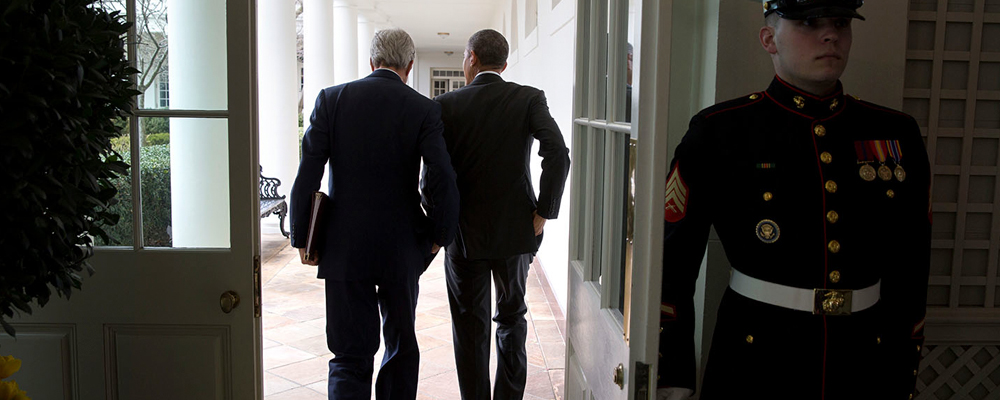Obama’s Last Months in the White House Are Explored in ‘The Final Year’
Alci Rengifo
History is written by the victors, so the saying goes. “The Final Year” starts off as a documentary following the Obama White House staff certain their side is winning, only to close on the sudden rise of Donald Trump. When this documentary works it provides fascinating, uncensored little details about how the halls of power operate, but it never quite becomes anything other than a standard, nostalgic romance about the American presidency. Most of the personas interviewed speak in slogans, and we never get any detailed insights into the foreign policy challenges and dilemmas being dealt with. Tied to an obvious nostalgia for a smoother, nicer presidency, director Greg Barker constantly avoids the rough edges. But it is still a documentary with intriguing moments that capture the breakneck schedules and grueling responsibilities of running the world’s most powerful office.
Barker and his crew here set out to chronicle the entire last year of the Barack Obama presidency from the perspective of its foreign policy. The big diplomatic moments like the opening to Cuba and the Iran nuclear deal have already passed, the big hurdles remain Syria, climate change and Boko Haram. The documentary focuses specifically on Deputy National Security Advisor Ben Rhodes, who was once an idealistic writer until 9/11 inspired him to get into public service. Now he serves primarily as Obama’s prime speechwriter and one of the key brains in the administration advocating for greater diplomatic advancements in the world. Other key personalities are U.S. Ambassador to the United Nations Samantha Powers and Secretary of State John Kerry. Both discuss the challenges their work brings, including diplomatic tussles with Russia over the Syrian war. National Security Advisor Susan Rice makes an appearance here and there (Vice President Joe Biden interestingly enough is completely absent). Hovering over it all is President Obama, who is the center of this team’s efforts and is the important public voice of which course the government is taking. But the clock is ticking as the 2016 elections come near and a new era is just around the corner.
Political documentaries are a tricky genre because you run the risk of being too captivated by your own subject. “The Final Year” can fall into the trap of never having a critical eye. Barker is obviously partisan in his approach, portraying the Obama White House as a romanticized entity. At times the montages, music and editing can feel like those campaign videos or recap clips they play at political conventions. The documentary is short at 1 hour and 29 minutes, and there were countless moments where we wish Barker would give us better insights into the workings of diplomacy. For example during the sections on Syria, we see footage of John Kerry squaring off with Russian Foreign Minister Sergei Lavrov over an attack on an aid convoy. All we get is the news footage. It would be interesting to hear what Kerry thinks about his counterpart, who is said even by enemies to be the sharpest diplomat since Zhou Enlai. Or how does the diplomatic team discuss the Syrian situation with U.S. allies like Saudi Arabia and Turkey? The last year of the Obama White House witnessed many close calls regarding that particular war, but Barker reduces the narrative to very generic commentary about how bad the situation there is. Only a few news clips offer any idea of what Kerry and Powers think about the war and its participants. The best section on Syria deals with Rhodes and Powers talking about the debates over whether the U.S. should have intervened militarily. Rhodes provides interesting insight into how Obama backed away from another disaster like Iraq, preferring not to initiate another Middle East war without international support.
Much of “The Final Year” can play like an interesting travelogue. There are harrowing moments where Powers meets with victims of Boko Haram in Nigeria, barely able to contain tears. Another moment shows her rushing down a U.N. hall to meet the Secretary General, saying “I don’t want to be late for him, everyone else I can be a little late for.” One of the documentary’s most intriguing moments focuses on Rhodes drafting the speech Obama would give as the first U.S. president to visit Hiroshima. These moments offer richer material as they provide a window into the crafting of what a president says in public, the finessing of phrases and careful selection of what to convey.
Obama himself is a distant, almost inaccessible figure for the entire running time. His own interview clips are reduced to quick statements that sound like phrases he’s rehearsed over and over for public speeches. We never get a raw portrait of the man, only the politician. Never does Barker ever show the president in an actual meeting with his team, so we never get a sense of what the dynamic is when everyone huddles with the commander-in-chief. Great political documentaries like “The War Room” are exhilarating in their portrayals of political players and teams, in that film we feel like a fly on the wall watching the fierce infighting and strategizing. “The Final Year” feels like everyone bunching together for a nice family portrait before getting into the nitty gritty behind closed doors.
Still, Barker conveys a sense of nostalgia and fun details. He shows us just how small the White House is, and creaky, with a staffer finding a big dead cockroach on the floor in the middle of a team huddle. Once Trump wins, the film becomes a crushing portrait of heartbreak. The best scenes might just be when Powers and friends sit together watching the election results, because there is no posturing here, but naked emotion.
“The Final Year” is an entertaining, energetic attempt at framing the last lap of the Obama presidency. But the real documentary of this time period, with all the rough edges, remains to be seen.
“The Final Year” opens Jan. 19 in select theaters.

